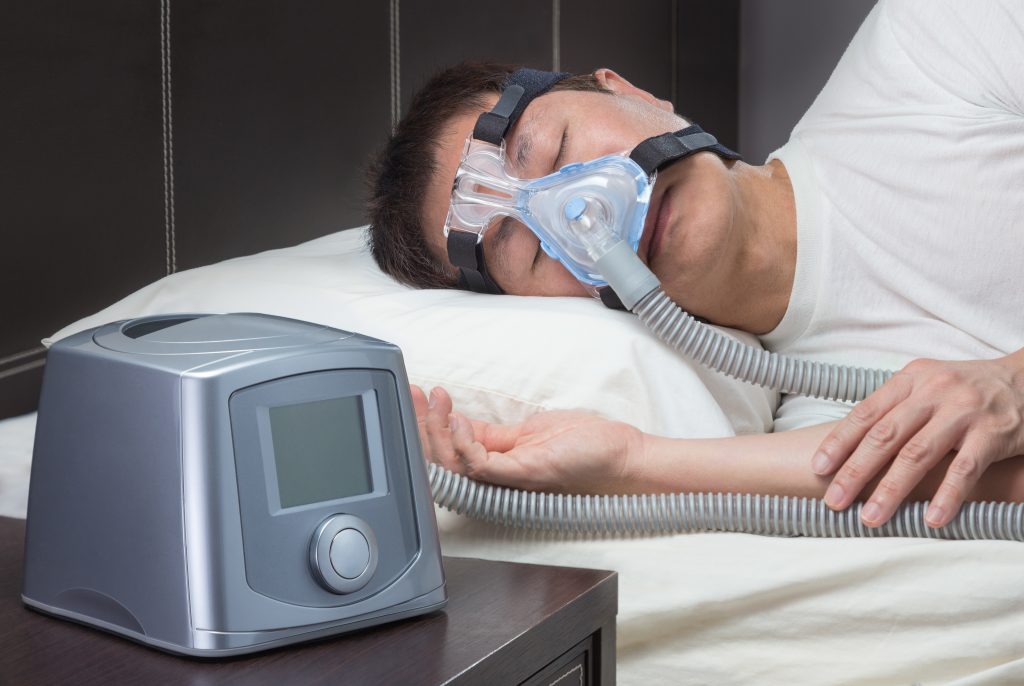Looking for Expert-Level VA Claim Answers?📱Call Us Now! 737-295-2226
Regardless of what others have said, it is not advised to file a VA claim for Sleep Apnea Secondary to Tinnitus.
It’s a stretch at best, and in our experience, the VA will deny this claim.
Why?
Because there is very little medical research to explain a causal link between Tinnitus and Sleep Apnea—Tinnitus does not cause Sleep Apnea and vice versa.
It’s also unlikely to find a competent and credible doctor who will write a high-quality Nexus Letter for Sleep Apnea Secondary to Tinnitus.
So, what about other options to service connect Sleep Apnea secondary?
Stay tuned because we’ll explain in detail how to get your Sleep Apnea service connected, even if you’ve already been denied.
Should I File a VA Claim for Sleep Apnea Secondary to Tinnitus?

No, we do not advise veterans to file a claim for Sleep Apnea Secondary to Tinnitus.
There is very little medical research to explain a causal link between Tinnitus and Sleep Apnea—and we know that Tinnitus does not cause Sleep Apnea and vice versa.
We recommend veterans seek another form of secondary service connection for Sleep Apnea using one of the following 10 conditions.
Can Tinnitus Cause Sleep Apnea?
No, Tinnitus does not directly cause Sleep Apnea; however, it can contribute to sleep disturbances in some individuals.
Tinnitus (ringing in the ears) may interfere with falling asleep or staying asleep, leading to sleep deprivation and daytime fatigue.
Sleep deprivation can worsen existing health conditions and potentially aggravate sleep apnea symptoms.
On the other hand, Sleep Apnea can lead to sleep disturbances and changes in blood flow and oxygen levels in the body.
These changes might potentially exacerbate Tinnitus symptoms in individuals who already experience ringing or buzzing in the ears.
What Conditions Can Sleep Apnea Be Secondary To?
Instead of trying to service connect Sleep Apnea Secondary to Tinnitus, here’s a list of the 10 most likely Sleep Apnea Secondary Conditions (that you have a much better chance of winning!)
- Sleep Apnea secondary to Asthma
- Sleep Apnea secondary to Deviated Septum
- Sleep Apnea secondary to Medications
- Sleep Apnea secondary to Rhinitis
- Sleep Apnea secondary to Sinusitis
What are Secondary Conditions to Sleep Apnea?
Sleep Apnea is a serious sleep disorder that can have a significant impact on your health.
Here’s a list of 10 conditions that Sleep Apnea may cause or aggravate:
- Hypertension (High Blood Pressure): Sleep apnea can cause repeated drops in blood oxygen levels, which can lead to increased blood pressure and hypertension.
- Cardiovascular Disease: Sleep apnea is associated with an increased risk of various heart conditions, including coronary artery disease, heart failure, arrhythmias (irregular heartbeats), and stroke.
- Type 2 Diabetes: Sleep apnea is linked to insulin resistance and glucose intolerance, contributing to the development or worsening of type 2 diabetes.
- Weight Gain and Obesity: Sleep apnea can disrupt normal sleep patterns, leading to fatigue and changes in appetite-regulating hormones, which may contribute to weight gain and obesity.
- Daytime Fatigue and Sleepiness: Frequent interruptions in sleep due to sleep apnea can cause excessive daytime sleepiness, leading to reduced alertness and an increased risk of accidents.
- Cognitive Impairment: Sleep apnea can lead to memory problems, difficulty concentrating, and cognitive impairment.
- Depression and Anxiety: Sleep apnea has been linked to an increased risk of developing depression and anxiety disorders.
- GERD (Gastroesophageal Reflux Disease): Sleep apnea can worsen symptoms of GERD, a condition where stomach acid flows back into the esophagus, leading to heartburn and discomfort.
- Erectile Dysfunction: Sleep apnea can contribute to erectile dysfunction in men.
- Metabolic Syndrome: Sleep apnea is a component of metabolic syndrome, a cluster of conditions that include high blood pressure, high blood sugar, abnormal cholesterol levels, and excess body fat around the waist. Metabolic syndrome increases the risk of heart disease, stroke, and diabetes.
Need a Nexus Letter Sleep Apnea?
Want to get a high-quality Nexus Letter for Sleep Apnea?
WE CAN HELP!
Veterans who become members of the VA Claims Insider Elite program get access to a network of independent medical providers who can write a Nexus Letter for Sleep Apnea as a secondary VA claim at reduced rates.
Why pay $1,500 to $2,000 for a Nexus Letter when you can get one for $595?
Click HERE to speak with an expert now for FREE (no risk, no obligation, no high-pressure sales tactics).
Tired of Fighting the VA Alone? WE CAN HELP!
- VA Claims Insider is the #1 most trusted name in VA disability claims.
- 25,000+ disabled veterans served in our membership programs since 2016.
- 30% average VA rating increase for veterans who complete our #1 rated Elite program.
- Employs 215 teammates; comprised of 74 veterans and 16 military spouses.
- 4.7/5.0 average rating out of 4,500+ total reviews; over 4,000 5-star reviews.
About the Author

Brian Reese
Brian Reese is a world-renowned VA disability benefits expert and the #1 bestselling author of VA Claim Secrets and You Deserve It. Motivated by his own frustration with the VA claim process, Brian founded VA Claims Insider to help disabled veterans secure their VA disability compensation faster, regardless of their past struggles with the VA. Since 2013, he has positively impacted the lives of over 10 million military, veterans, and their families.
A former active-duty Air Force officer, Brian has extensive experience leading diverse teams in challenging international environments, including a combat tour in Afghanistan in 2011 supporting Operation ENDURING FREEDOM.
Brian is a Distinguished Graduate of Management from the United States Air Force Academy and earned his MBA from Oklahoma State University’s Spears School of Business, where he was a National Honor Scholar, ranking in the top 1% of his class.




